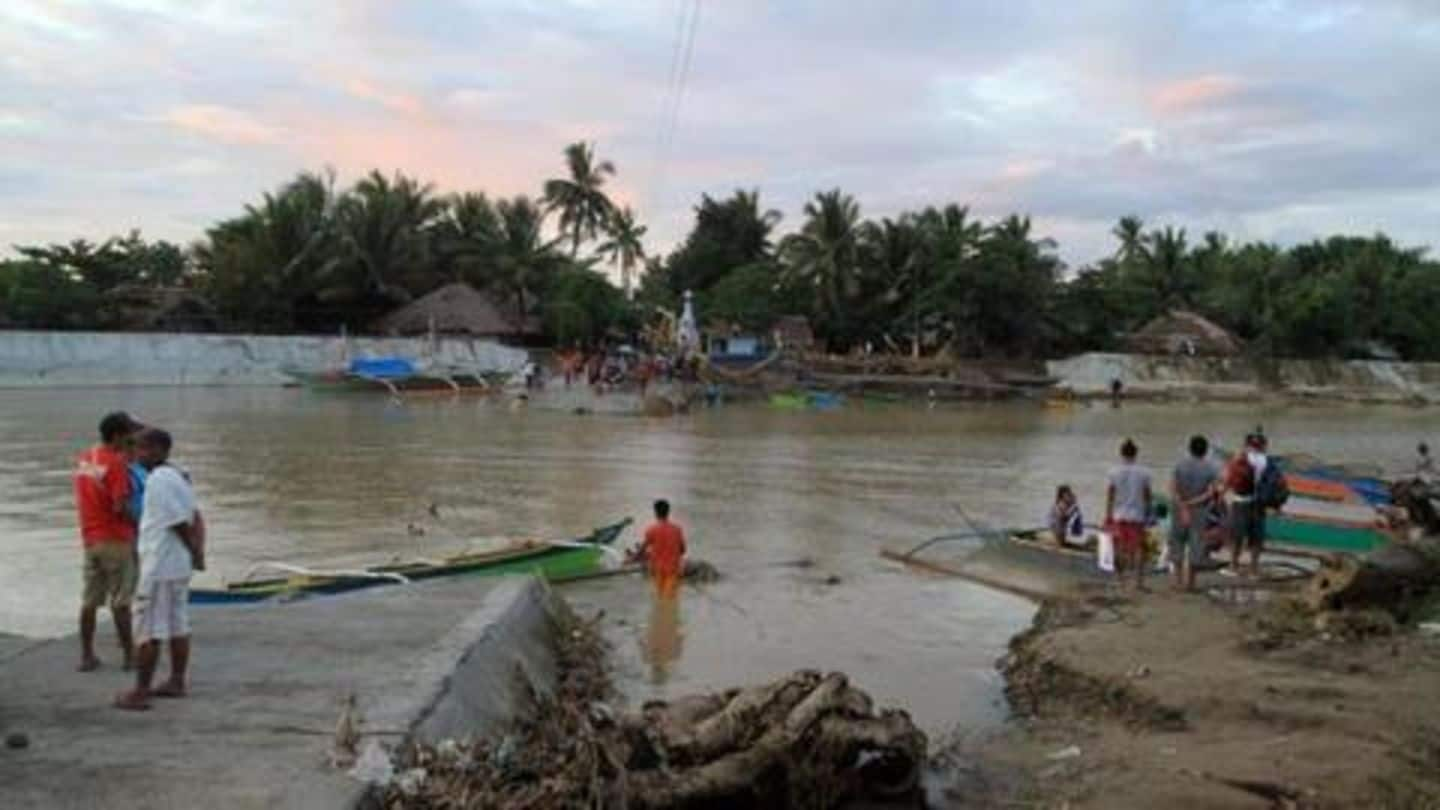
Death toll from Philippines storm, landslides climbs to 126
What's the story
The death toll from a storm that devastated the Philippines shortly after Christmas rose to 126, authorities said today, adding landslides caused by torrential rain were the top cause.
The storm hit central and eastern Philippine islands on December 29 and caused massive flooding and landslides.
More than 100 people died in the mountainous Bicol region southeast of Manila, regional disaster officials said.
Information
Government didn't inform the people properly about the typhoon
While the Bicol region is often hit by deadly typhoons, many people failed to take necessary precautions because the storm was not strong enough to be rated as a typhoon under the government's storm alert system, according to civil defense officials.
Aftermath
Many residents were reluctant to leave their homes during Christmas
Officials also said many residents were reluctant to leave their homes during the Christmas holidays.
"In two days alone, Usman (storm) poured more than a month's worth of rainfall in the Bicol region," national disaster agency spokesman Edgar Posadas said, using the local name for the storm which had weakened into a low-pressure area.
"Our search and retrieval operations are ongoing," he said.
Information
Sticky mud, unstable soil are the challenges for search team
"The sticky mud and the unstable soil are a challenge during search operations," Posadas said. The death toll was likely to climb further with 26 people still missing, he added. More than 152,000 people were displaced by the storm and 75 were injured.
Details
About 20 typhoons and storms hit Philippines each year
President Rodrigo Duterte visited the storm-hit areas on Friday and urged officials to build evacuation centers instead of using schools as shelters for the displaced.
About 20 typhoons and storms batter the Philippines each year, killing hundreds of people.
The deadliest in recent years was Super Typhoon Haiyan which left more than 7,360 people dead or missing across the central Philippines in 2013.